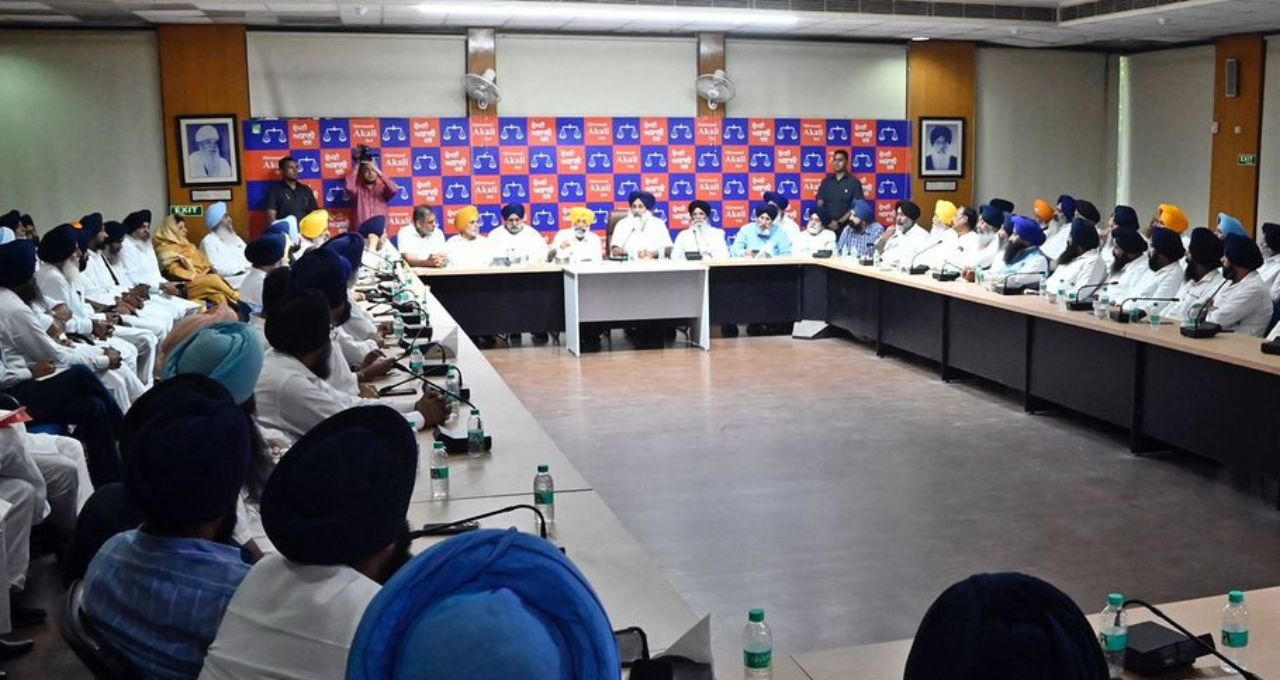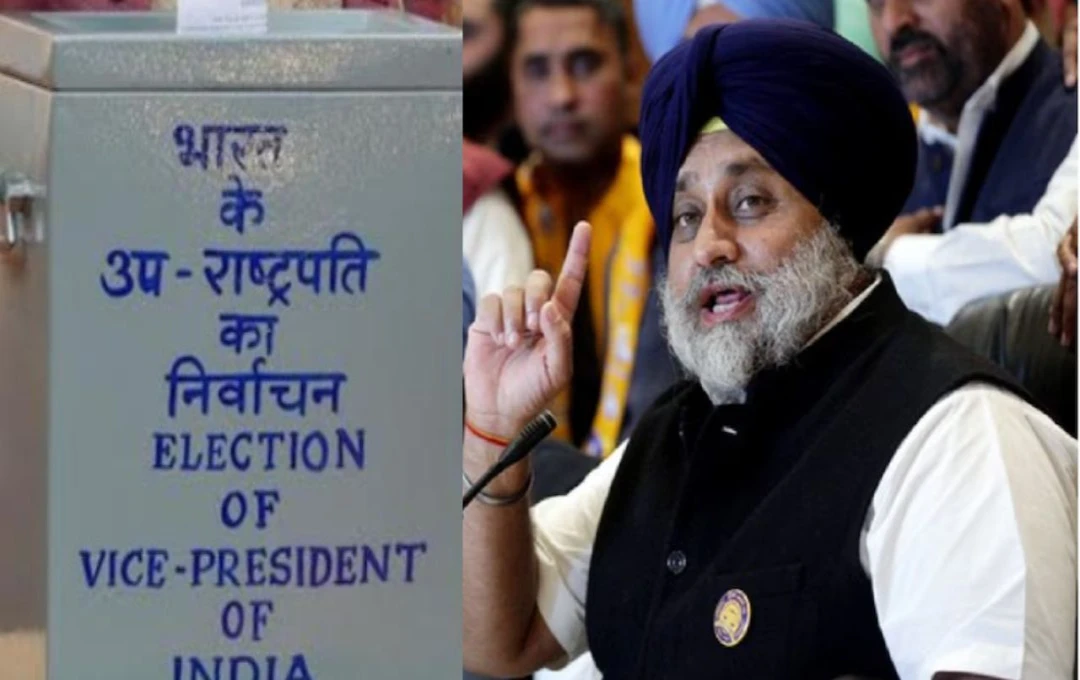Shiromani Akali Dal (SAD) boycotts Vice Presidential election protesting floods in Punjab and negligence by the Center-State. BRS and BJD also stayed away from voting. NDA's Radhakrishnan and Sudarshan Reddy are the main candidates in the election.
VP Election 2025: The Shiromani Akali Dal (SAD) has decided to boycott the Vice Presidential election scheduled for Tuesday. The party states that both the Central and State governments have shown severe negligence in assisting people during the devastating floods in Punjab. Bathinda MP Harsimrat Kaur stated that nearly one-third of the state is submerged, causing significant damage to homes and crops. She attributed this man-made tragedy to the state government's inefficiency and the Center's indifference.
Boycott by Other Parties
Not just the Akali Dal, but other political parties have also decided to distance themselves from the Vice Presidential election. The Bharat Rashtra Samithi (BRS) announced its abstention from voting, citing the lack of assistance from the Center and the state for farmers in Telangana. Meanwhile, the Biju Janata Dal (BJD) stated that they maintain an equal distance from both the NDA and the INDIA bloc and will not support any side.
Candidates for Vice Presidential Election
This time, the Vice Presidential election is a direct contest between NDA candidate C.P. Radhakrishnan and B. Sudarshan Reddy, supported by the INDIA bloc. The competition between the two candidates is considered to be tough. Both the NDA and the INDIA bloc have conducted mock polls with their respective MPs to prevent any invalid or irregular voting during the election.
An NDA leader claimed that their candidate is likely to receive at least 427 votes. Meanwhile, the Congress and opposition parties have expressed confidence that their candidate could secure more than 324 votes.
Vacancy of Vice Presidential Post and Reason

The post of Vice President became vacant on July 21 following Jagdeep Dhankhar's resignation due to health reasons. Following this, the process for a by-election began. The election for the Vice President is conducted under the provisions of Articles 64 and 68 of the Constitution. This election is carried out by the MPs from both Houses of Parliament and is notified according to constitutional procedures.
Process of Vice Presidential Election
The Vice Presidential election is quite different from a general election. In this, the general public does not vote; rather, only Members of Parliament cast their votes. This voting is conducted under the system of proportional representation and the single transferable vote system. Voting is secret, and MPs must cast their vote in person.
MPs who are in preventive custody are allowed to vote through postal ballots. This time, some MPs will use postal ballots as they are in jail or custody. The ballot papers are white and contain the names of the candidates in both Hindi and English. To vote, MPs mark their preference as 1 or 2. Numbers are recorded only numerically, not in words.
Vote Counting and Rules
The counting of votes begins about an hour after voting concludes. First, valid and invalid ballot papers are separated. The quota required for victory is determined based on the number of valid votes. If a candidate does not achieve the quota in the first preference votes, the candidate with the fewest votes is eliminated, and their votes are transferred according to second preferences. This process is repeated until a candidate secures a majority.
Votes are considered invalid if there is no '1' marked next to a candidate's name, or if '1' is marked for more than one candidate. Similarly, a vote will be deemed invalid if the signature or certificate is missing in a postal ballot.
Anti-Defection Law Not Applicable in Vice Presidential Election
There is no party symbol in the Vice Presidential election. Due to this, no party issues a whip. MPs can cast their votes at their discretion, and the anti-defection law does not apply here. This means MPs do not face the risk of losing their membership for cross-voting.










